The Roche Cervical Cancer Portfolio provides three clinically validated tests to help identify women at risk and improve detection and confirmation of high-grade disease in a single round of screening. The powerful combination of these tests supports healthcare professionals in making decisions for their patients with confidence.
The landmark ATHENA clinical study helped shape our understanding of the role of high-risk HPV testing in cervical cancer screening. The ATHENA HPV trial1 was a large, prospective clinical study evaluating the performance of the cobas®️ HPV Test in three relevant populations: women with ASC-US cervical cytology, women with normal cervical cytology, and an overall screening population (25+ years) to explore HPV as a first-line test (ongoing longitudinal 3 year study).
ATHENA, with over 47,000 women enrolled, also set out to evaluate the medical value of testing for pooled hrHPV DNA as well as genotypes 16 and 18 individually.
ATHENA Plus Trial was a retrospective study comparing the results of CINtec® PLUS Cytology vs. Pap cytology triage of HPV (+) test results from a subset of samples collected in this trial. Results are correlated to histology follow-up reported in the ATHENA data.2
CINtec® PLUS Cytology outperforms Pap cytology as the triage test for HPV (+) screening results. Primary screening by the cobas® HPV DNA test with triage using the CINtec® PLUS Cytology test demonstrates high sensitivity and specificity to detect transforming HPV infections and helps avoid unnecessary colposcopy for women who do not need it.
The landmark IMPACT (IMproving Primary screening And Colposcopy Triage) trial was a cervical cancer screening study designed to clinically validate and support the FDA approval of tests in Roche Cervical Cancer Portfolio – CINtec® PLUS Cytology, a dual-stain biomarker-based test, and the cobas® HPV test for use on the cobas® 6800/8800 Systems. The multi-center, prospective clinical study included >35,000 women aged 25-65 undergoing routine screening.3
The results demonstrate that p16/Ki-67 dual-stained immunocytochemistry is safe and effective for the triage of HPV-positive women identified during primary HPV screening. It also offers an alternative to current triage strategies which are based on cytology, either alone or combined with HPV16/18 genotyping. 4
The CERTAIN (CERvical Tissue AdjunctIve aNalysis) study is one of the largest, most rigorous immunohistochemistry clinical studies. It analyzed the impact of adjunctive use of p16 IHC on diagnostic sensitivity and specificity for ≥CIN2 when p16 IHC was used according to the LAST recommendations.5
It showed that adjunctive use of p16 IHC provides more accurate and reproducible diagnostic results in the interpretation of cervical biopsies, ensuring that more patients are treated correctly without treating a larger number of patients. In LAST cases, diagnostic accuracy, diagnostic sensitivity, and diagnostic specificity were all significantly increased for ISPH&E + p16 compared to ISPH&E.
Guidelines
The International Agency for Research on Cancer (IARC) has developed supplements to the current European guidelines for quality assurance in cervical cancer screening. The supplements take into account the potential of primary testing for human papillomavirus (HPV) and vaccination against HPV infection to improve cervical cancer prevention and control.6, 7
Human papillomavirus (HPV) DNA testing is recommended in all resource settings.
The Roche Cervical Cancer Portfolio is covering the entire spectrum of screening, triage, and diagnostic solutions. It helps determining the individual level of risk a woman has so that you will know what to do next and when.
References:
1 Stoler MH., et al., High-risk human papillomavirus testing in women with ASC-US cytology: results from the ATHENA HPV study. Am J Clin Pathol. 2011
2 Wright TC., et al., Triaging HPV-positive women with p16/Ki-67 dual-stained cytology: Results from a sub-study nested into the ATHENA trial. Gynecol Oncol. 2017
3 Safaeian M., et al., The IMPACT trial: human papillomavirus, cervical cytology and histopathological results from the baseline and 1-year follow-up phase. J. Obstet. Gynecol. 2021
4 Wright TC., et al., Clinical validation of p16/Ki-67 dual-stained cytology triage of HPV-positive women: Results from the IMPACT trial. Int J Cancer. 2021
5 Stoler M.H., et al. Routine Use of Adjunctive p16 Immunohistochemistry Improves Diagnostic Agreement of Cervical Biopsy Interpretation: Results From the CERTAIN Study. Am J Surg Pathol. 2018
6 Huh WK et al. Use of primary high-risk human papillomavirus testing for cervical cancer screening: interim clinical guidance. J Low Genit Tract Dis. 2015
7 von Karsa, L. et al. European guidelines for quality assurance in cervical cancer screening. Summary of the supplements on HPV screening and vaccination. Papillomavirus Research. 2015
For HCPs only
MC-HR-01718






